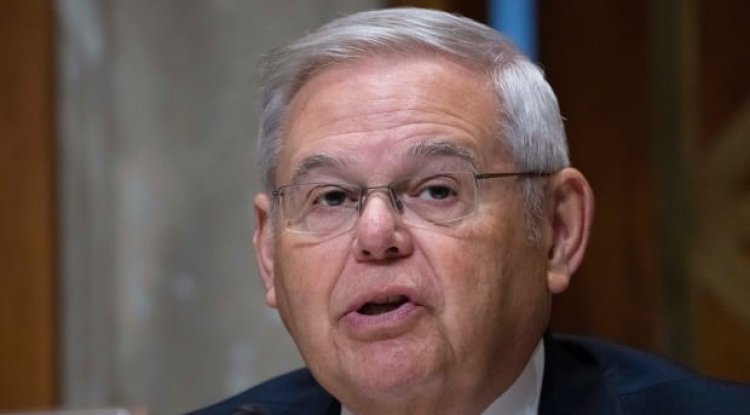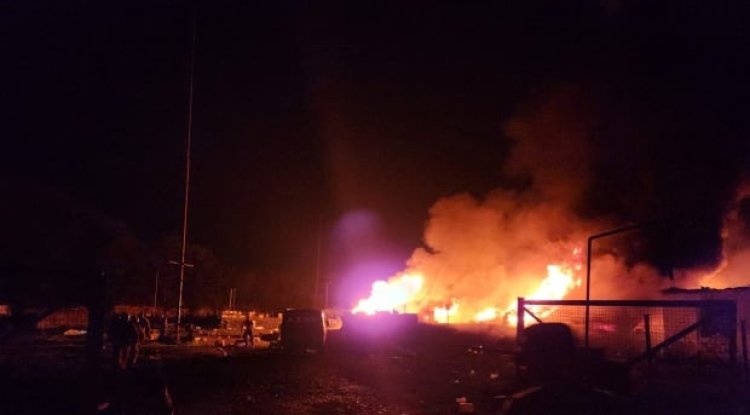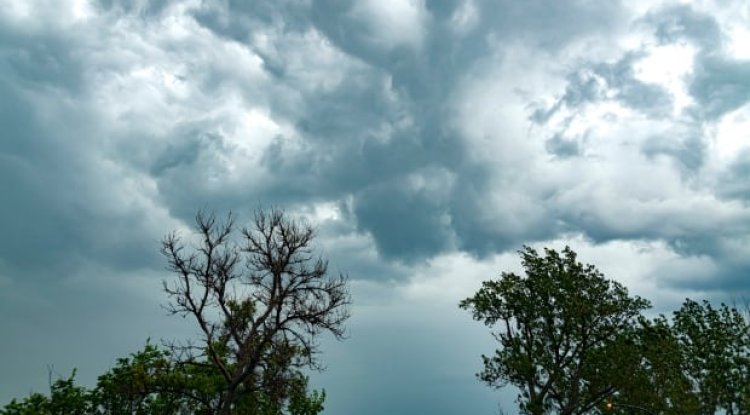Highly caffeinated version of Prime Energy drink ordered recalled by federal government
Cans of Prime Energy drink are seen on a store shelf in Alberta. The cans contain 200 milligrams of caffeine, in violation of Health Canada regulations. (Submitted by Chris Cook )A highly caffeinated version of a new energy drink made popular by social media influencers, which is being sold at some stores in Canada in violation of national heath regulations, is being recalled.Cans of Prime Energy, each with 200 milligrams of caffeine, have been seen on shelves in Ontario, Quebec and Alberta, CBC News has learned. That exceeds Health Canada's limit by 20 milligrams."As a result, it should not be sold in Canada," a Health Canada spokesperson said in an email on Tuesday. In a separate email to CBC News sent late Tuesday, a spokesperson for the Canadian Food Inspection Agency (CFIA) said the product was being recalled following a health risk assessment by Health Canada. Details of the recall were to be published Wednesday. It was not immediately clear where the stores got the product, on


A highly caffeinated version of a new energy drink made popular by social media influencers, which is being sold at some stores in Canada in violation of national heath regulations, is being recalled.
Cans of Prime Energy, each with 200 milligrams of caffeine, have been seen on shelves in Ontario, Quebec and Alberta, CBC News has learned.
That exceeds Health Canada's limit by 20 milligrams.
"As a result, it should not be sold in Canada," a Health Canada spokesperson said in an email on Tuesday.
In a separate email to CBC News sent late Tuesday, a spokesperson for the Canadian Food Inspection Agency (CFIA) said the product was being recalled following a health risk assessment by Health Canada. Details of the recall were to be published Wednesday.
It was not immediately clear where the stores got the product, one of two drinks made by the social media influencers Logan Paul and KSI.
Prime Energy was also being sold on Walmart Canada's online marketplace, but was removed after CBC News asked about it. Walmart says it has notified the third-party seller.

In an email, Prime said it follows the regulations set out by the countries it sells in. It said its Canadian version has 140 milligrams of caffeine.
Asked to account for the presence of the 200-milligram U.S. cans, Prime repeated that it "complies with federal regulations."
The company noted that the packaging says Prime Energy is "an energy drink and is not made for anyone under the age of 18."
The president of the Canadian Beverage Association (CBA) says they're aware people might be importing the drink and "circumnavigating standard food labelling and approval processes."
"I think it's disappointing, candidly," said Krista Scaldwell. "We want safety being a top priority."
She says most caffeinated drinks sold in Canada have 80 milligrams of caffeine in a 250-millilitre can.

She says if someone finds the product in stores, they should report it to the CFIA.
This comes after U.S. Sen. Chuck Schumer called on the Food and Drug Administration (FDA) to investigate the drink on Sunday, raising concerns about its caffeine levels and what he characterized as its targeted marketing to children.
Some pediatricians have said kids and teens should stay away from energy drinks, which often hit the shelves in a variety of fruity flavours and in cans sporting bright colours with interesting logos.
The high amounts of caffeine can cause a range of physical and psychological side effects.
Health Canada's recommended maximum caffeine intake for children up to age 18 is 2.5 milligrams per kilogram of body weight.

What is Prime?
Paul and KSI founded Prime together, releasing their first drink, Prime Hydration, last year.
Earlier this year, the company released Prime Energy, which, in the U.S., contains 200 milligrams of caffeine per 12 ounces — equal to six cans of Coca-Cola or about two to three cups of coffee.
CBC News spoke with several kids in Toronto about Prime, but none had tried the caffeinated version.
Claire Zimmerman, 12, said she's only had Prime Hydration and thought it "wasn't really good."
She said she's never seen it advertised to her on TikTok and didn't know there was a caffeinated one.
Despite not liking it, after watching an ad, Zimmerman said she would try Prime Energy.
"They're saying it has caffeine in it, but they're not describing it like it tastes like it has caffeine in it," she said.

"I don't like the taste of [coffee] but … I like fizzy and I love blue raspberry so that would make me want to try it."
Mikhiail Hanen, 17, said he's also enjoyed Prime Hydration. He says he's seen Prime marketing on social media and knows about the influencers behind it.
He says he drinks coffee and kind of wants to try the caffeinated one, but that he doesn't want "any health trouble."
Are health experts worried?
Dr. Olivier Drouin, a pediatrician and researcher at Sainte-Justine Hospital in Montreal, says energy drinks are a public health concern, especially when consumed by young people.
"I think there's many unknowns," he said. "Like the vaping epidemic … the trend has been too recent for us to have kind of long-term data about like the effect it has on people's health. You know, we don't know what 20 years [of] consumption of energy drinks look like."
While Drouin says he isn't familiar with the Prime drinks specifically, he and his colleagues often get questions about energy drinks from both parents and teenagers.
He says if young people get into the habit of having them, the often high amounts of sugar can cause obesity, diabetes and diseases that impact the heart and metabolism.
Additionally, he says high amounts of caffeine can lead to physical and psychological problems, such as heart palpitations, panic attacks, high blood pressure and anxiety.
Such side effects can also happen during withdrawal, should the person choose to stop.
He adds the drinks can also interact with certain medications, like drugs for attention deficit hyperactivity disorder (ADHD) and can heighten side effects.
"This escalation and consumption in caffeine content of each drink makes me worried," he said, as do the long-term health effects and the marketing to teenagers "who might not have all the facts about what they're ingesting."

'Vastly different' products
In an emailed statement, a Prime representative said, it is important to distinguish betwen Prime Hydration and Prime Energy "because they are vastly different." And neither is intended for children.
"As a brand, our top priority is consumer safety, so we welcome discussions with the FDA or any other organization regarding suggested industry changes they feel are necessary in order to protect consumers."
One Canadian food law industry expert says such businesses are breaching the Food and Drug Act and Regulations.
"If you're a retailer in Canada and you're selling these goods, then you should stop, because you're running contrary to a few provisions in the Food and Drugs Act," said Glenford Jameson, a lawyer and partner at G.S. Jameson & Company.
According to Jameson, the most likely consequences include having the drinks taken, destroyed or forfeited, though the penalty can be much higher depending on the case.
He says there are a number of ways non-compliant products can come into Canada, but that retailers need to be vigilant and ensure they are working with reliable supply chain partners.
What's Your Reaction?


















